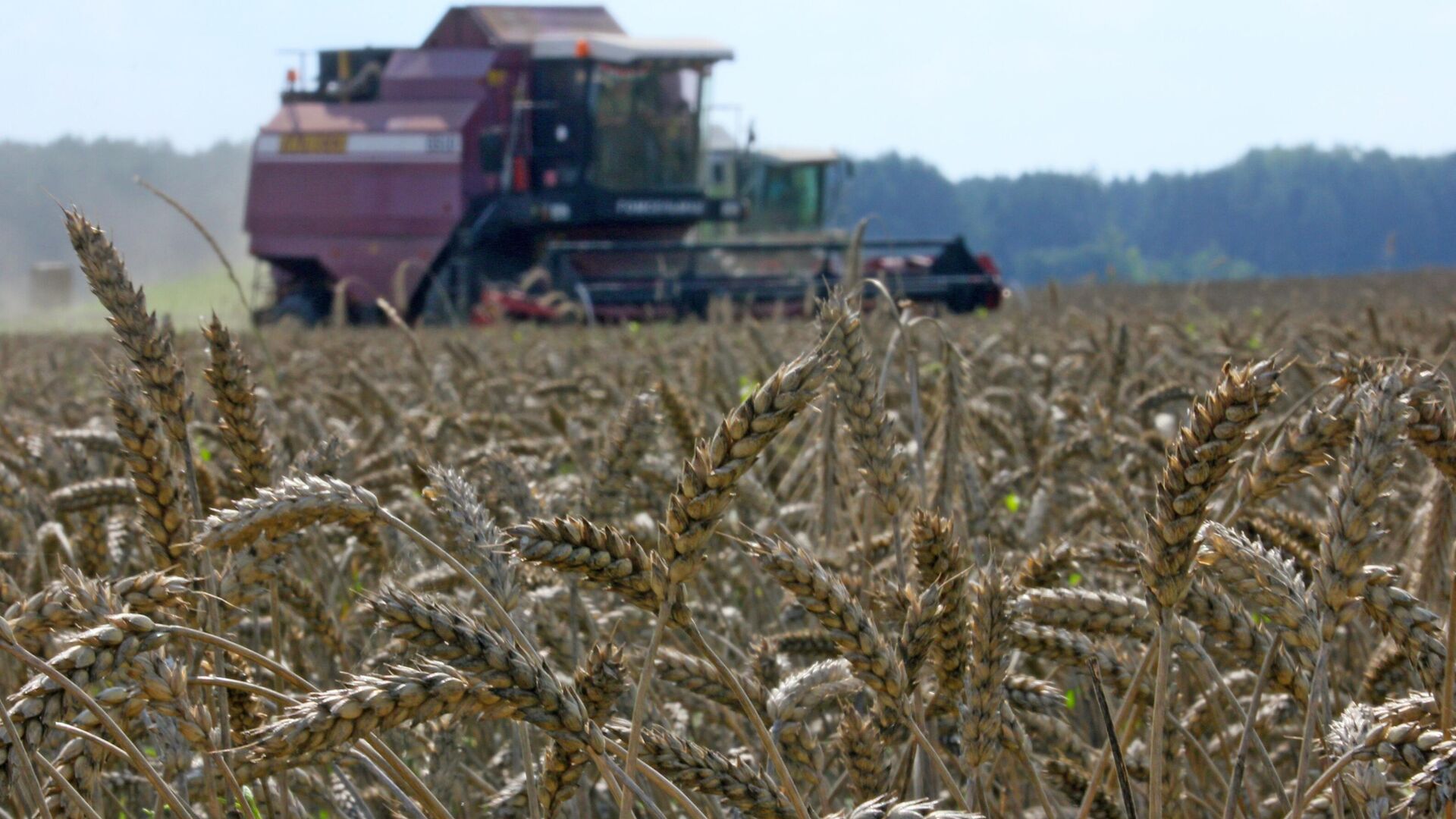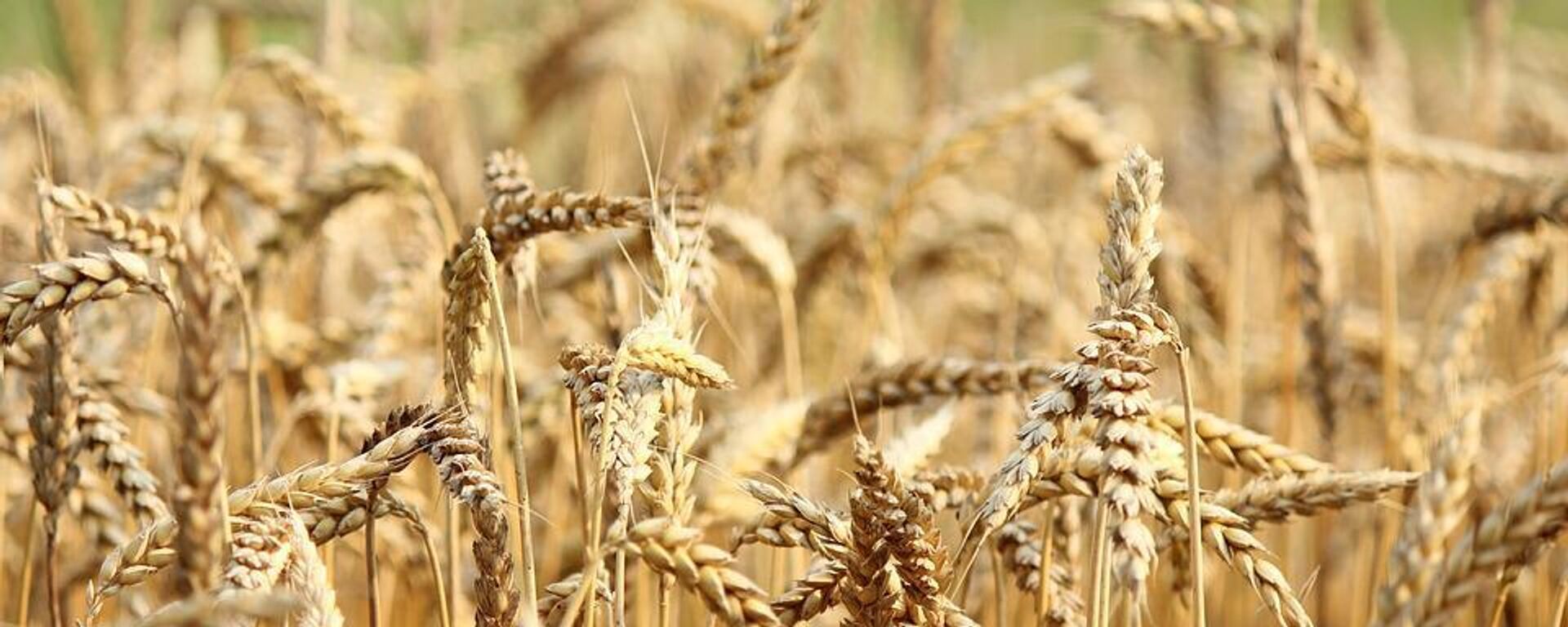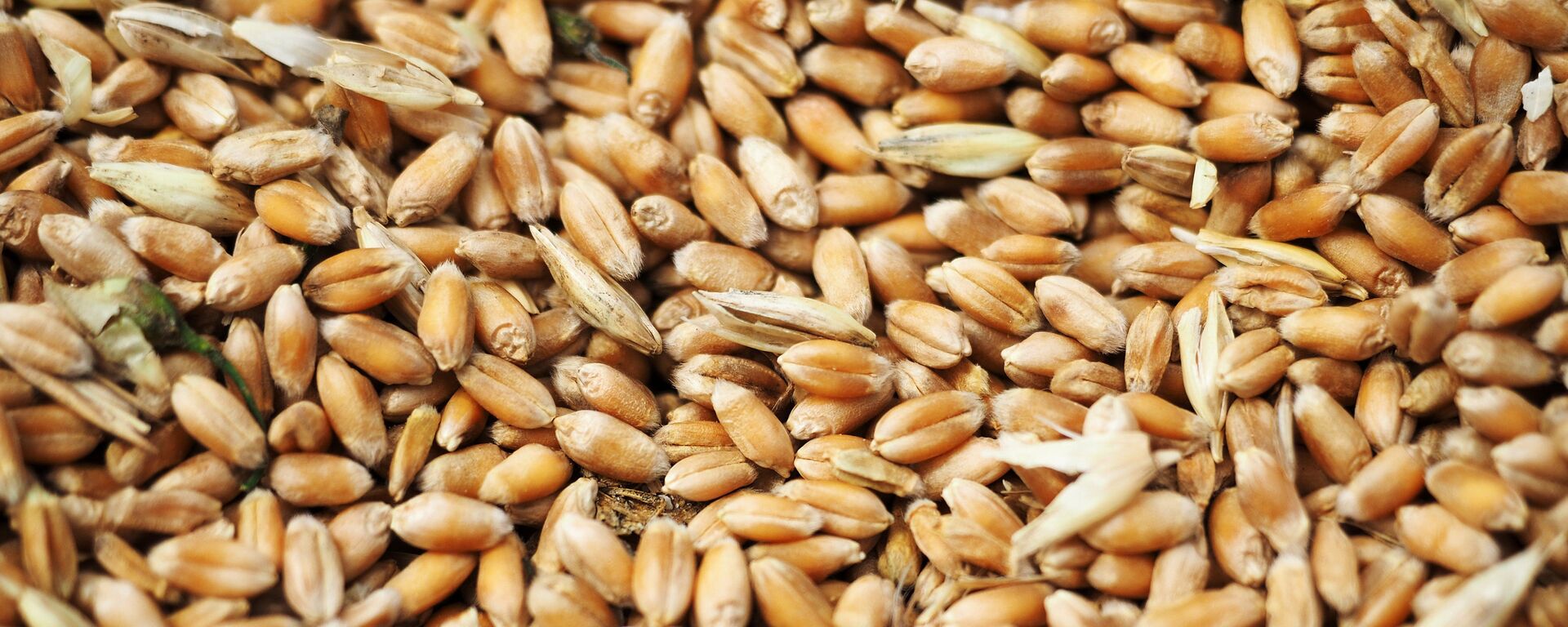https://sputnikglobe.com/20230417/hungarian-grain-producer-incomes-down-about-30-due-to-cheap-ukrainian-imports-1109595509.html
Hungarian Grain Producer Incomes Down About 30% Due to Cheap Ukrainian Imports
Hungarian Grain Producer Incomes Down About 30% Due to Cheap Ukrainian Imports
Sputnik International
According to Hungarian agriculture minister, national companies lost from 23% to 37% of income due to Ukrainian dumping prices
2023-04-17T14:34+0000
2023-04-17T14:34+0000
2023-06-19T12:48+0000
economy
grain
hungary
ukraine
ukrainian crisis
https://cdn1.img.sputnikglobe.com/img/07e5/0a/07/1089742425_0:0:3173:1785_1920x0_80_0_0_b5c41b97ae17ca6be77ff4af97db0963.jpg
According to him, the greater part of food products imported from Ukraine for EU transit has remained in Hungary. In addition to grain, Ukraine has used its temporary duty-free arrangement with the EU to export honey, poultry and eggs, displacing Hungarian products from its regular markets, the minister said. The low price of Ukrainian grain is the result of crop growing methods uncommon in the European Union, Nagy added. The Hungarian national food chain safety office discovered cases of Ukrainian grain being infected with mycotoxins, and several samples tested positive for genetically modified organisms. On Saturday, Poland and Hungary said they were banning imports of Ukrainian agricultural products until June 30, citing the need to protect domestic farmers from the uncontrolled influx of cheap grain from Ukraine. On Monday, Slovak Prime Minister Eduard Heger said that Slovakia would join these countries in suspending grain imports from Ukraine. Bulgaria is also mulling a similar ban, according to the country's agriculture minister, Yavor Gechev. Sandor Farkas, state secretary at the Hungarian Ministry of Agriculture, warned the European Commission on Monday that his country could extend the ban on Ukrainian grain imports beyond the June 30 deadline if the EU’s executive did not stand by Hungarian farmers.in late March, prime ministers of Bulgaria, Hungary, Poland, Romania and Slovakia published a joint open letter to President of the European Commission Ursula von der Leyen, calling for measures to counteract the negative effects of the increased Ukrainian grain imports. Since early February, several Polish farmer organizations have been protesting the uncontrolled import of cheap Ukrainian grain.
https://sputnikglobe.com/20230402/influx-of-ukraines-cheap-grain-to-europe-fuels-anger-erodes-support-for-kiev-regime-1109048118.html
https://sputnikglobe.com/20230412/high-levels-of-pesticides-found-in-ukrainian-grain---slovak-agriculture-minister-1109394117.html
hungary
ukraine
Sputnik International
feedback@sputniknews.com
+74956456601
MIA „Rossiya Segodnya“
2023
Sputnik International
feedback@sputniknews.com
+74956456601
MIA „Rossiya Segodnya“
News
en_EN
Sputnik International
feedback@sputniknews.com
+74956456601
MIA „Rossiya Segodnya“
Sputnik International
feedback@sputniknews.com
+74956456601
MIA „Rossiya Segodnya“
dumping, ukrainian crisis, grain ukrain, grain crisis in europe
dumping, ukrainian crisis, grain ukrain, grain crisis in europe
Hungarian Grain Producer Incomes Down About 30% Due to Cheap Ukrainian Imports
14:34 GMT 17.04.2023 (Updated: 12:48 GMT 19.06.2023) BUDAPEST (Sputnik) - Hungarian grain producers lost from 23% to 37% in income over the past year as grain imports from Ukraine jumped from 40,000-60,000 tonnes to 2.5 million tonnes, Hungary's agriculture minister, Istvan Nagy, said on Monday.
"According to the generalized data, the total amount of Ukrainian grain and oil cultures was 2.5 million tonnes last year, of which 1.8 million tonnes is direct import and 0.7 million tonnes is indirect. Just to understand how big this amount and the problem caused by it are: in the previous years regular Ukrainian import was around 40,000-60,000 tonnes a year," Nagy told Hungarian newspaper.
According to him, the greater part of food products imported from Ukraine for EU transit has remained in Hungary.
"The major part has most probably stayed in the country, which we feel primarily based on prices. According to our price system data, the producer price of edible wheat in Hungary without value added tax and transportation cost is 27% lower than a year ago, the price of fodder wheat is 37% lower and fodder corn is 23% lower," Nagy said.
In addition to grain, Ukraine has used its temporary duty-free arrangement with the EU to export honey, poultry and eggs, displacing Hungarian products from its regular markets, the minister said.
The low price of Ukrainian grain is the result of crop growing methods uncommon in the European Union, Nagy added. The Hungarian national food chain safety office discovered cases of Ukrainian grain being infected with mycotoxins, and several samples tested positive for genetically modified organisms.
On Saturday, Poland and Hungary said they were banning imports of Ukrainian agricultural products until June 30, citing the need to protect domestic farmers from the uncontrolled influx of cheap grain from Ukraine. On Monday, Slovak Prime Minister Eduard Heger said that Slovakia would join these countries in suspending grain imports from Ukraine. Bulgaria is also mulling a similar ban, according to the country's agriculture minister, Yavor Gechev.
Sandor Farkas, state secretary at the Hungarian Ministry of Agriculture, warned the European Commission on Monday that his country could extend the ban on Ukrainian grain imports beyond the June 30 deadline if the EU’s executive did not stand by Hungarian farmers.
"If Brussels does not take protective measures against Ukrainian grain that Hungarian farmers deem sufficient, the import ban may be extended beyond the newly announced deadline," Farkas was quoted as saying in parliament.
in late March, prime ministers of Bulgaria, Hungary, Poland, Romania and Slovakia published a joint open letter to President of the European Commission Ursula von der Leyen, calling for measures to counteract the negative effects of the increased Ukrainian grain imports. Since early February, several Polish farmer organizations have been protesting the uncontrolled import of cheap Ukrainian grain.




